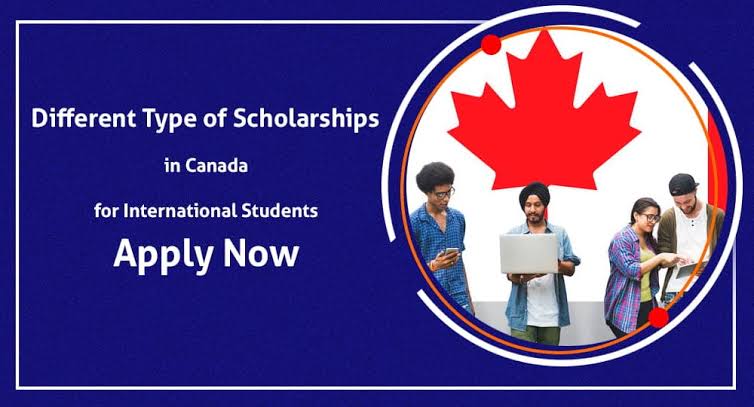Canada continues to be a top destination for both domestic and international students, thanks to its high-quality education system and multicultural environment. One of the biggest concerns for many students, however, is how to finance their studies.
To address this challenge, Canadian institutions, government agencies, and private organizations offer a wide variety of scholarships. These funding opportunities aim to support academic achievement, encourage diversity, promote research, and make education more accessible.
As of July 2025, the scholarship ecosystem in Canada has become even more dynamic, with new digital platforms and targeted funding programs designed to meet evolving academic and social needs.
Merit-Based Scholarships
Merit-based scholarships are among the most common types of financial awards available in Canada. These scholarships are awarded based on academic excellence, leadership potential, or outstanding extracurricular involvement.
Most universities automatically consider students for entrance scholarships once they apply for admission. These awards may range from a few hundred dollars to full tuition coverage, depending on the institution and student’s performance.
In 2025, Canadian universities are increasingly recognizing non-academic achievements such as innovation, community service, and leadership roles when awarding merit-based scholarships, offering a more holistic evaluation of applicants.
Need-Based Scholarships and Bursaries
Need-based scholarships and bursaries are designed for students who demonstrate financial hardship. Unlike merit scholarships, these awards are primarily based on income level, number of dependents, or unexpected life circumstances.
Students typically need to submit proof of income, personal statements, or recommendation letters when applying for financial aid. Many universities now use streamlined digital systems to assess financial need more accurately and confidentially.
With rising education costs, institutions in Canada have increased the allocation for need-based aid in 2025, particularly to support students from underrepresented and low-income communities.
Government-Funded Scholarships
The federal and provincial governments in Canada offer a variety of scholarships to support students across various levels of education. These include both domestic and international students.
Notable federal programs include the Canada Graduate Scholarships (CGS) for master’s and doctoral students, and the Vanier Canada Graduate Scholarships, which are awarded to top-tier PhD candidates.
Provincial governments also offer specific scholarships tailored to local needs. For instance, Ontario offers the Queen Elizabeth II Graduate Scholarship, while Alberta provides the Graduate Student Scholarship.
As of July 2025, several new provincial programs have been introduced to support students in priority fields like climate science, healthcare, and artificial intelligence.
Scholarships for International Students
Canada continues to attract a growing number of international students, and many institutions offer scholarships specifically for this group. These scholarships help cover tuition, accommodation, and living expenses, making education more accessible to talented students from around the world.
Examples include the Lester B. Pearson International Scholarship at the University of Toronto and the International Entrance Scholarship at the University of British Columbia.
In 2025, many universities have expanded their international scholarship portfolios in response to Canada’s commitment to global education and cultural diversity, offering country-specific and region-specific awards.
Research-Based Scholarships
For students involved in advanced studies, particularly at the graduate level, research-based scholarships are crucial. These scholarships are often tied to faculty-led research projects or national funding bodies.
Programs like the NSERC Postgraduate Scholarships support students in natural sciences and engineering, while SSHRC fellowships support those in the social sciences and humanities.
Many of these awards include not just financial support but also access to labs, fieldwork opportunities, and research mentorship. In 2025, interdisciplinary research is being especially encouraged, with new funding streams for projects that bridge science, technology, and social issues.
Athletic Scholarships
For students who excel in sports, athletic scholarships offer a path to combine academics with competitive play. Canadian universities and colleges under the U Sports and CCAA associations offer athletic funding to students who contribute significantly to their teams.
These scholarships typically require maintaining a specific GPA and active participation in university athletics. Although not as widespread as in the U.S., Canadian athletic scholarships have grown in value and number over the past few years.
By July 2025, more institutions are integrating wellness programs and athlete-specific academic support to ensure student-athletes succeed both on the field and in the classroom.
Indigenous Scholarships and Supports
Canada has prioritized reconciliation and support for Indigenous communities, and this commitment extends into education. Numerous scholarships are available exclusively for First Nations, Inuit, and Métis students.
These include the Indspire scholarships, the Canada Post Aboriginal Education Fund, and various university-based initiatives that offer both funding and academic support services.
In 2025, new programs have been introduced at both federal and provincial levels to enhance accessibility for Indigenous youth, including scholarships focused on land-based education, language preservation, and cultural revitalization.
Field-Specific Scholarships
Many scholarships in Canada are tailored to specific academic disciplines or career paths. These targeted awards help meet labor market needs by encouraging students to pursue studies in high-demand fields.
For example, there are specialized scholarships for students in STEM (science, technology, engineering, and mathematics), nursing, education, social work, and renewable energy.
In 2025, the Canadian government and industry partners are jointly funding scholarships in climate technology, cybersecurity, data analytics, and green energy. These scholarships often include internships or co-op placements as part of the award package.
Private and Corporate Scholarships
Beyond government and institutional awards, many private companies and foundations offer scholarships to support education and corporate social responsibility goals. These include banks, tech firms, law firms, and nonprofit organizations.
Companies like RBC, TD, and Telus have long-running scholarship programs that support diversity, entrepreneurship, and innovation among young Canadians.
As of July 2025, there has been a rise in corporate-sponsored scholarships tied to mentorship programs, networking events, and career development workshops, offering students not just money, but long-term career support.
Conclusion: A Diverse Range of Opportunities
The Canadian scholarship landscape in 2025 is more inclusive, dynamic, and responsive than ever. With support available from governments, institutions, private organizations, and international bodies, students from diverse backgrounds and disciplines have more opportunities to finance their education.
Whether you are an academic achiever, an athlete, a community leader, or someone facing financial hardship, there is likely a scholarship designed to meet your needs in Canada.
By researching early, meeting application deadlines, and presenting strong personal stories, students can take full advantage of the vast funding opportunities that Canada has to offer, setting themselves up for academic success and a brighter future.




Nice